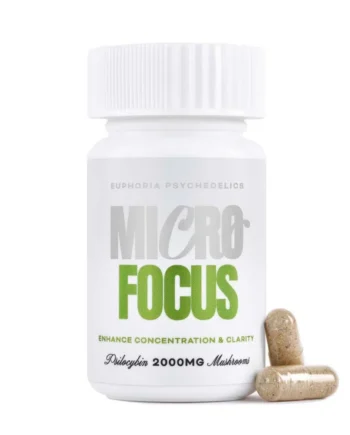Description
What Are Lion’s Mane Mushrooms?
Lion’s mane mushrooms are big, white mushrooms that resemble a lion’s mane. Although they’re generally thought of as a single type of mushroom, there are three different species. Hericium erinaceus is the one that’s most widely available.
Lion mane mushrooms usually look like white pom-poms and are used as both food and medicine. They are extensively used in Asian countries such as Korea, Japan, India, and China.
You can find lion’s mane mushrooms in Mind Trip Dispensary shop.
Lion’s mane mushrooms have a flavor that many describe as similar to seafood. They can be eaten raw, dried, or cooked. As a supplement, the mushroom comes in powders, liquids, and capsules.
Lion’s mane mushrooms are rich in vitamins such as thiamine, riboflavin, and niacin. They are also a good source of essential minerals such as manganese, zinc, and potassium.
Lion’s Mane Benefits
Fighting inflammation and free radicals
Many health conditions, including heart disease, arthritis, and cancer, involve chronic inflammation and the effects of unstable molecules in our bodies called free radicals. Lion’s mane contain potentially potent antioxidants, which are substances that limit the damage of free radicals. They also contain anti-inflammatory substances that show promise in animal studies.
Fighting dementia and other brain diseases
Some studies in animals and small, preliminary studies in people suggest lion’s mane mushrooms might have a role in the prevention or treatment of cognitive decline, including Alzheimer’s disease.
For example, in one study of 30 older adults with mild cognitive impairment, those who took tablets containing Hericium erinaceus powder for 4 months showed a temporary improvement on cognitive tests. The mushrooms have also been shown to slow Alzheimer’s symptoms and brain changes linked to the disease in mice.
Reducing anxiety and depression
Lion’s mane extracts could help treat some mental health conditions. To test this possibility, a study was carried out on Japanese women with many health conditions, including menopausal symptoms and poor sleep. Some were given cookies made with lion’s mane extracts while others were given placebo cookies for 4 weeks.
Side Effects
There’s not much research on whether it’s safe to eat or take supplements of lion’s mane for a prolonged period or about their side effects.





